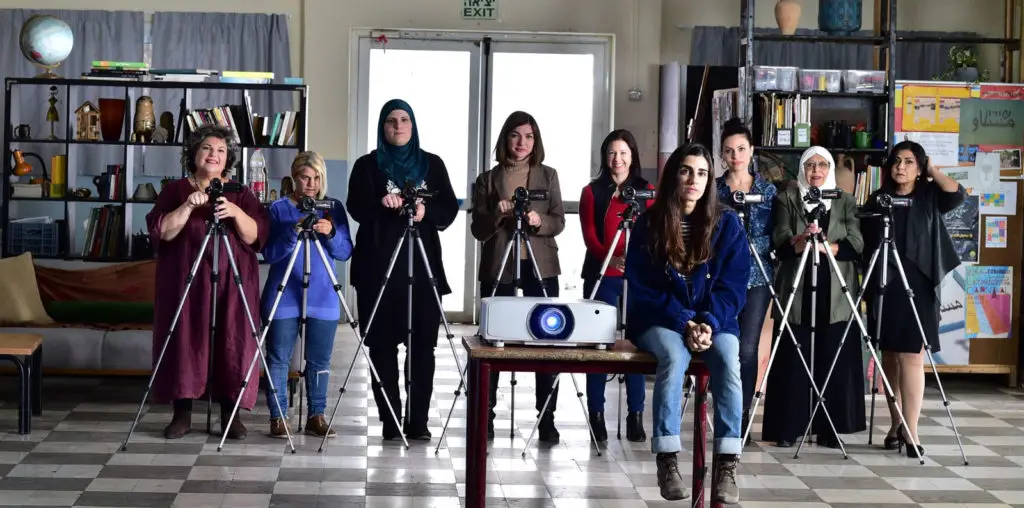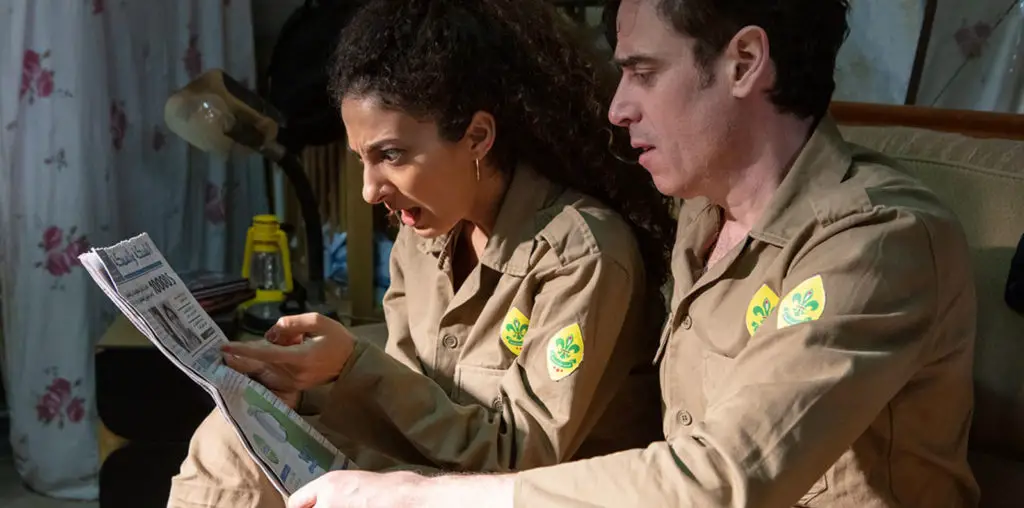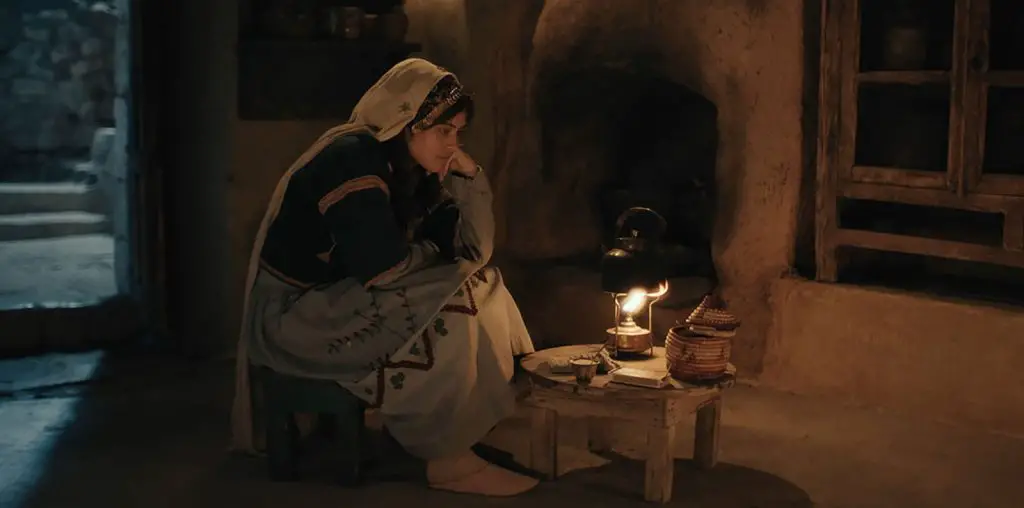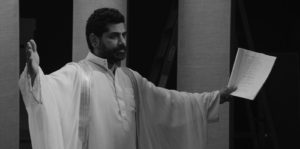
Their later task is to indulge in a collaborative reading of The Little Drummer Girl, a 1984 film based on the novel of the same name. Here, the three constantly switch roles: Palestinian, Mossad agent, and American. The job, in this reading of an espionage thriller, is to understand Juliano’s sentiments, who played a non-speaking role in the movie that marked his feature film debut.
The film has an unusual premise. Using Juliano KMer-Khamis as a meta-figure and having the three protagonists use him to find their respective voices is sheerly high-concept. To add complexity, the film breaks the fourth wall, with Dahan showing up on-screen and guiding the actors, who also play performing artists within the movie. The confusing breaks, the largely contextual dialogues derived from learning in history, and the connections to Mer-Khamis are often confusing.
But then, all four actors (the artists and the directors) deliver enthusiastic and yet, subtle performances, whose dialogues Dahan profoundly emphasizes to convey his intentions. And as the three discuss the screenplay at hand, their personal opinions take over, which intensifies the conversation, often leading to aggression. As the tension grows, the meta-link, Juliano, begins to find a more prominent place in it, eventually leading to a comprehensive understanding of his anti-war activism.
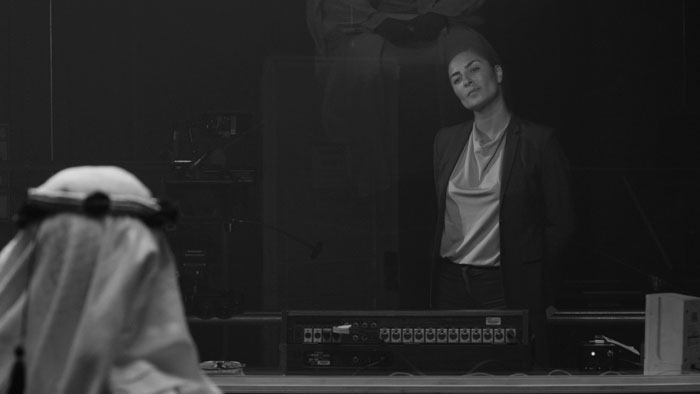
“…compelling and enlightening high-concept dive into the Israel-Palestine conflict…”
The cinematography offers greater detail to the movie. While the fourth wall breaks are visualized in color, the film is shot in black and white. It reflects the gray area people navigate concerning the Israel-Palestine conflict without looking at the whole picture. The editing is crisp, with images perfectly synchronized with the breaks and the in-between recordings of Mer-Khamis’s films and interviews. And perfectly corresponding to the sentiments, tension, and eventual release is the music that brings out countless emotions in the movie and the viewers.
Imagine you are self-conflicted with something going on in your life. You then engage in a conversation that details that conflict out loud. The resulting clearance of thoughts and subsequent newfound outlook offers a more intelligent resolution to the issue. Yes Repeat No is an innovative on-camera depiction of that exercise. The conflict here is the Israel-Palestine conflict. The answer – well, you’d need to watch the movie!
Juliano Mer-Khamis was a complex man. Anything he spoke about, which included an exact prophecy of his death, was never straightforward. And perhaps that’s why Yes Repeat No somewhat dissects his ideas to a large extent, which may have you find admiration for him, even if you haven’t heard of the man. And the best part – even in that dissection, the film doesn’t enforce an idea or a decision, but only an anti-war sentiment which is only logical in the modern world.
Yes Repeat No is not a simple film and is the most unusual take on a biographical inspiration. Yet, with the tense setup, a conversation-heavy screenplay, and incredible performances, it gradually opens up as you approach the end. Its idea is ultimately compelling and enlightening. And its filmmaking style is amazingly awe-inspiring. There are layers of coded messages in Yes Repeat No. And you must traverse through the concept with the performers and the directors to break those codes. It’s not an average entertainer or a visual glam spectacle. It requires attention and pushes you to be a part of its exercise. Hence, it is a perfect film for cinephiles that wish to expand their horizons concerning taste in movies. It’s a tribute to filmmaking, a tribute to performing arts, and a tribute to Mer-Khamis. Not the man, but the idea. In the shortest description – Yes Repeat No is cinema.
Yes Repeat No screens at the 2023 Beverly Hills Film Festival on April 20th.
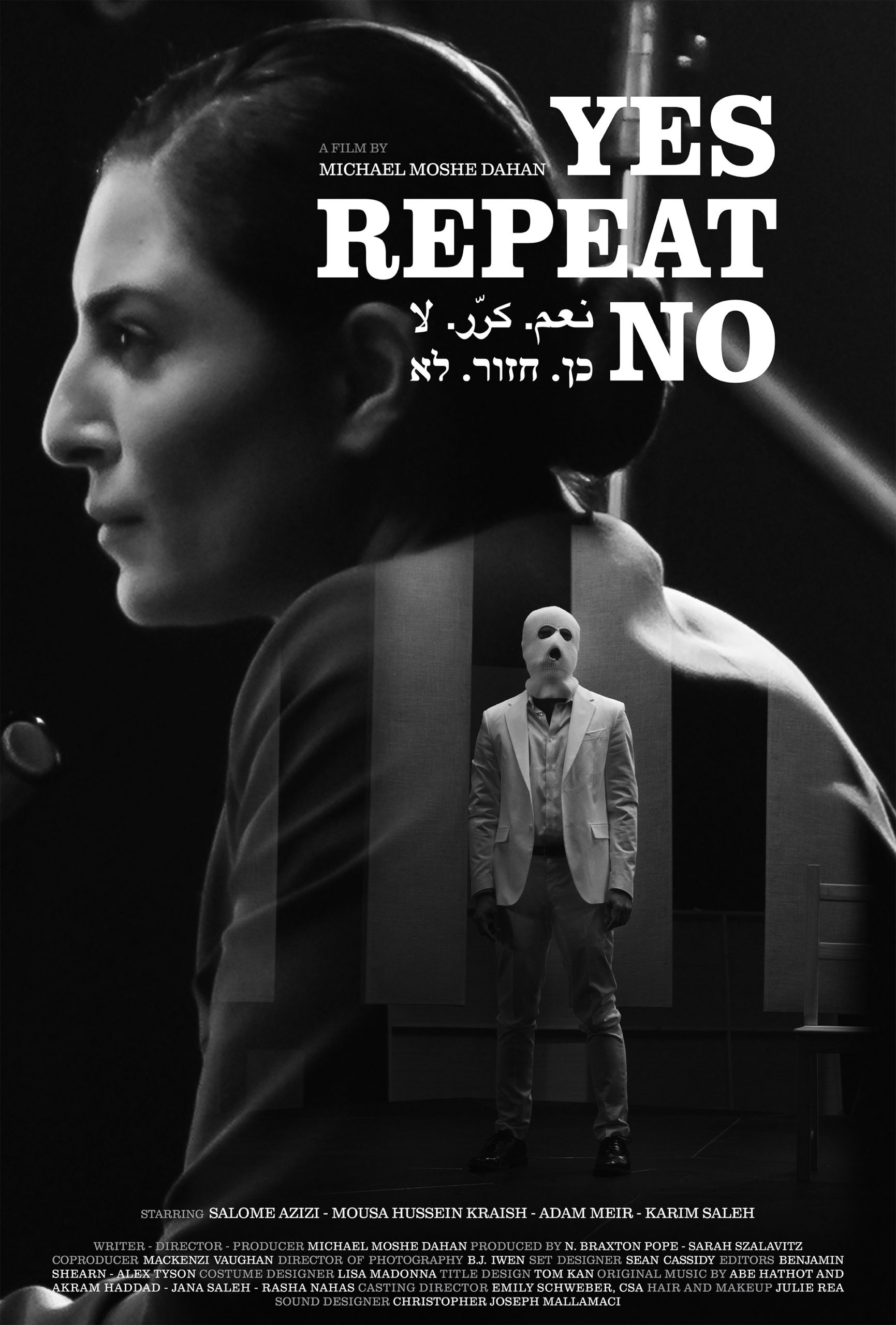
"…a tribute to filmmaking, a tribute to performing arts, and a tribute to Mer-Khamis"
